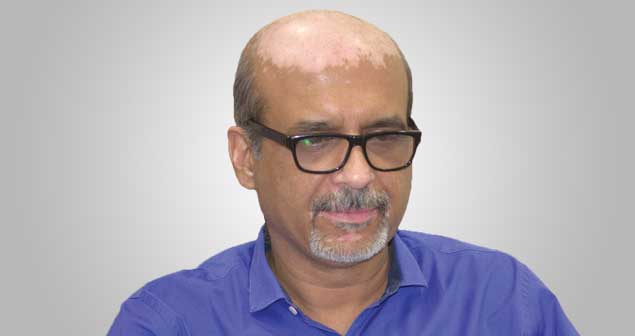- Contact Us
- +91-98111-55335
- [email protected]

DIY: Arduino Based Liquid Vending Machine
April 18, 2020
Present Status Of Quantum Based Superfast Computers
April 18, 2020“We Help Startups In Every Possible Way During The Incubation Period”

A brainchild of the Software Technology Parks of India (STPI), Electropreneur Park helps electronics startups through the processes of incubation, acceleration and pitching to VCs. Sanjeev Chopra, chief executive officer, Electropreneur Park, in an exclusive conversation with Mukul Yudhveer Singh, sheds light on how the organisation is helping India based startups incubate, accelerate and pitch ideas to VCs
Q. What do you offer startups, in terms of support?
A. We offer every incubated startup a dedicated office space at our centre, giving full-time access to the state-of-art electronics lab facilities and product development assistance. Typically, an electronics startup needs to invest two million to three million rupees in the necessary test and development equipment. We have advanced testing equipment like spectrum analysers, variable DC loads, 3D printers, PCB prototyping machines, EDA/software tools and embedded tools for creating embedded designs, and more. Then, as a part of the programme, we offer each startup an anchor mentor, who could be a leader/expert in a company or a successful entrepreneur. We also facilitate interactive sessions with technical experts from the industry, such as chip manufacturers/distributors like Infineon Technologies, STM, Arrow Electronics, etc. We arrange visits by technical experts and engineers from leading organisations to Electropreneur Park, and sit down with startup team members to understand the application and help them choose the right set of components for the product or solution they are building. While all the facilities are extended to a startup without any outright fee or charges, we expect each firm to share a small percentage of its equity for the sustainability of the Electropreneur Park project.
Q. How long does a season usually run for? How many startups have you helped so far?
A. A formal call for proposals is given and outreach activities are conducted every eight to nine months, depending on the availability of incubation space. We have already conducted six seasons. We started operations in April 2016 and are in our fourth year of operation. Till now, we have been able to support forty startups in various programmes. Our programme typically runs for one-and-a-half to two years, as far as the incubation is concerned.
Q. What does the term ‘exit’ signify?
A. By ‘exit’ we mean that we completely let go of whatever equity we hold in the startup that is exiting. The money that comes in can be used to sustain this project. Exits generally happen when venture capital (VC) comes in and there is a VC level of funding involved.
Q. How many types of programmes do you run?
A. We have two types, mainly, the pre-incubation programme and the incubation programme. There is also a third category, which is virtual acceleration. It is offered to startups that are not located at Electropreneur Park premises. For example, we have one startup under virtual acceleration in Bengaluru. That programme involves more of mentoring and other support services.
Q. What if a startup is not ready to make an exit two to three years after the incubation?
A. Apart from the physical space, all the other support is available to startups that have graduated. If a startup graduates after two years but still wants mentoring or access to the lab facilities, we extend these facilities without any charges. We also continue to extend our support in market access to these startups.
Q. What happens if a startup makes an exit and another reaches out to you with the same idea?
A. At any given time, we do not incubate two directly competing startups unless we see a synergy among them. However, if a startup is working on an idea with a new value proposition, though addressing maybe the same problem as an earlier startup, then we may consider taking it on board.
Q. From all the applications you receive, how do you select the startups?
A. We do the first level of screening to shortlist twenty complete and most promising proposals. These teams are then called to make a detailed presentation and pitch to a panel of industry leaders and experts. After making presentations, a lot of cross-questioning and discussions take place. We typically coach about six to eight startups every season.
Q. What if the panel sees potential in a startup but is still not sure?
A. We have started a pre-incubation programme. For the first two seasons, we were only taking startups that had a validated proof-of-concept (POC) for incubation. Now, if a startup has a very good business idea, and we see potential in the team, then we give them free access to the lab and the office for a period of three months along with the required technical and business mentorship. Once the startup is able to demonstrate a POC, it gets an opportunity to pitch again to the panel for the incubation programme.
Q. Are you focusing on startups working around some specific technologies?
A. While selecting a startup, we look for innovation, uniqueness of the idea, business potential, team capabilities and the feasibility of the project to create a sustainable business venture within one to two years.
We also ensure that we are able to offer the required mentorship and facilities in the technology area of the startup we incubate.
